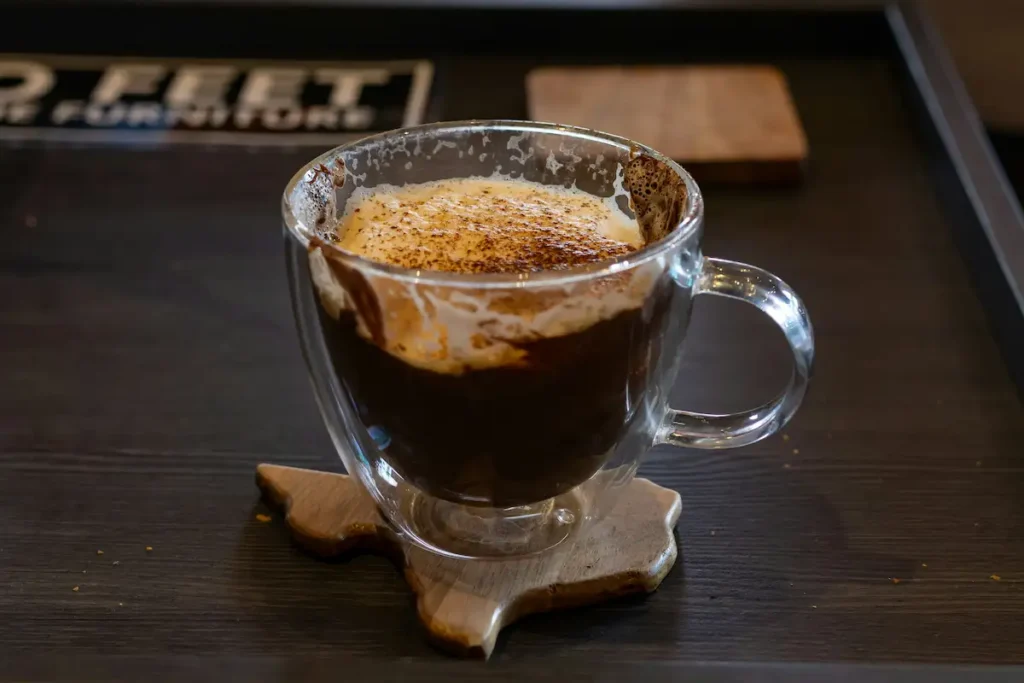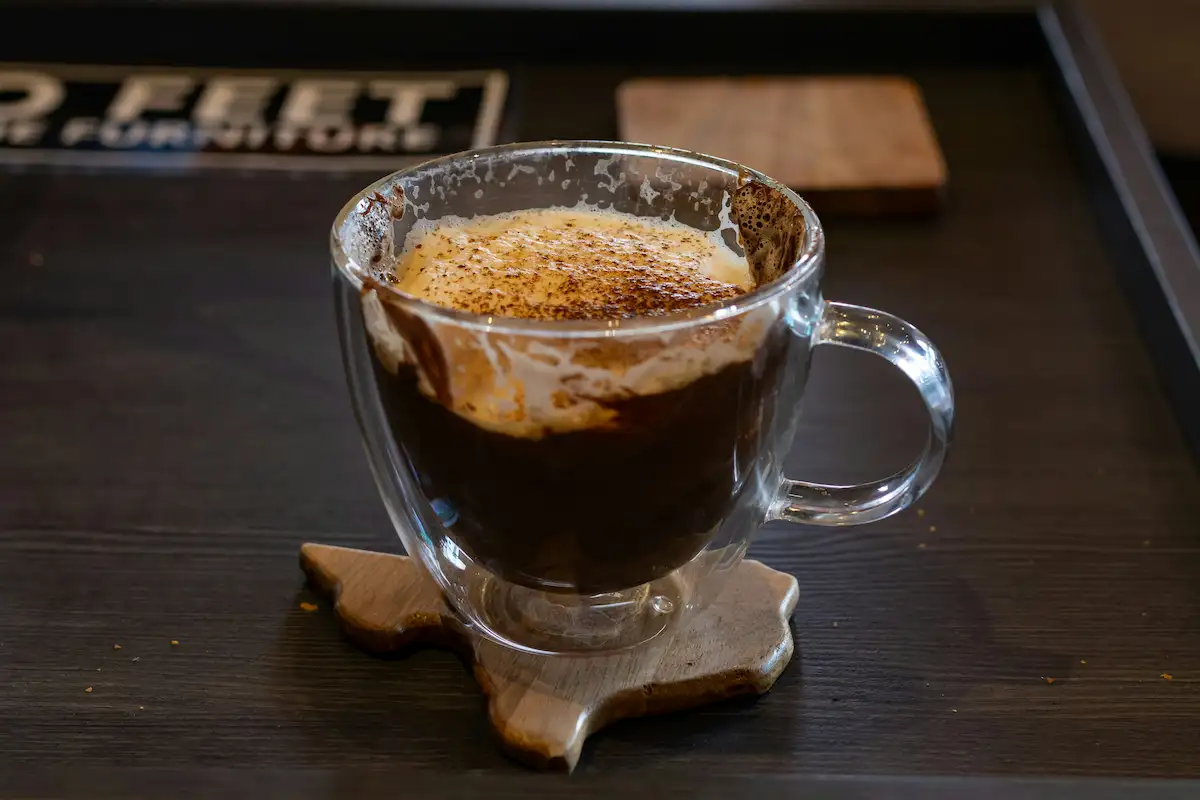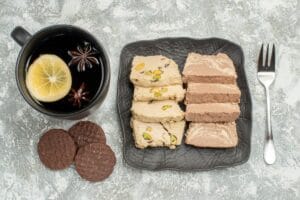
I drink almost 2 to 3 cups of coffee a day. But does it really help me? No, not at all. I have been having a bad time with my sleep, so I decided to drink decaf coffee after 5 pm. But at the beginning, one question was wandering around my head: Does decaf coffee taste different?
To find the answer, I read a lot of articles and did a lot of research. Today, I will discuss all of my research. So, if you want to start drinking decaf and want to know about its taste, keep reading until the end. I hope you will find the perfect answer or at least an idea about it.
What is decaf coffee?
If you want to know what decaf coffee tastes like, first you need to know what it is. We usually know that normal coffee has caffeine, but decaf coffee is different.
Decaf coffee is short for decaffeinated coffee. And it is made from coffee beans that have had most of their caffeine removed.
The process of decaffeination doesn’t get rid of all the caffeine, but it usually gets rid of about 97% of it. There are three major ways to create decaffeinated coffee:
- The Swiss Water process
- The Carbon Dioxide method
- The Chemical Solvent method.
Each changes the taste in its own way, but the water process is the most common way to keep the beans’ original flavour.
Also, decaf coffee has been very popular in the USA and some other countries in the past few years. According to a past Statista survey, 15.9% of people in the USA have been drinking decaf. Which is exponentially increasing day by day.
Does Decaf Coffee Taste Different?
Yes, decaf coffee tastes different than regular coffee. But the difference is not always as major as some might think. It is true that decaf coffee tastes different from regular coffee, but it’s important to understand why.
The primary reason decaf coffee tastes different is the removal of caffeine. Caffeine adds a coffee taste, such as bitterness and other flavor profiles.
However, the process of decaffeination also changes the taste. As I said earlier, there are different ways to get rid of caffeine. If you want to know more, you should read this detailed decaffeination process.
Also, coffee beans themselves play a huge role. Freshly roasted, high-quality decaf beans often taste a lot like regular beans. If the beans aren’t very good or are cooked too long, then the taste might be a little flat.
So, yes, decaf coffee does taste different. But it’s hard to tell if it’s bad or good. Everyone experiences different tastes, so it depends on individuals. If you want to know how it tastes for real, the best practice is to try each processed decaf coffee.
Normal Coffee vs Decaf Coffee?
Decaf coffee tastes almost the same as normal coffee. But when anyone wants to switch to decaf, they first wonder, “Does decaf coffee taste different than normal coffee?”
I have been drinking decaf for many years now. So, I can share my own experience with decaf vs. regular coffee. To do so, you need to understand a few factors.
The Role of Caffeine in Taste
It’s important to know that caffeine affects coffee’s taste. Caffeine is bitter and slightly acidic, which improves the overall experience.
The process of decaffeination takes the caffeine out of the beans. Which makes the coffee taste a little smoother and less strong. It isn’t always bad, but it can make decaf feel a little weaker or softer than regular coffee.
The Brewing Method Matters
Another important factor is how you brew your coffee. How you make your coffee—drip, espresso, or French press—will change the taste, whether you’re having regular or decaf.
Some brewing methods bring out the bitterness and richness of the coffee more. Because caffeine is taken out of decaf, these flavors may not stand out as much. However, when brewed well, decaf can still have a satisfying depth and complexity.
Quality of Beans
Not all decaf coffee is created equal. If you want good coffee, the beans you use are very important. Better decaf beans, like those from speciality coffee roasters, are often decaffeinated in a way that doesn’t damage their natural tastes. These beans taste like regular coffee, but the body or colour might differ.
Personal Taste Preferences
Everyone has a different opinion on how decaf coffee tastes because everyone has different tastes. Some people say that decaf coffee tastes just as good as regular coffee. Some people say it doesn’t. I like smooth, creamy, and rich-flavoured coffee, so sometimes I don’t feel so good about decaf. But still, I drink decaf, and I love it.
If you try different beans, brewing methods, and decaffeination methods, you may find a decaf that tastes like normal coffee!
Who is Decaf Coffee Bad For?
While decaf coffee is generally safe for most people, but there are some limitations. So, individuals need to consider the consumption rate to avoid health risks or sensitivities.
1. People Sensitive to Solvents: The direct solvent method uses chemicals like methylene chloride or ethyl acetate to remove caffeine. Methylene chloride is used in different types of work activities, such as paint stripping, cleaning, and polyurethane foam manufacturing.
Here is the full research about Methylene Chloride.
However, producers can still decaffeinate coffee with methylene chloride because the new EPA rule does not apply to food. The US FDA monitors this use case and says the solvent is safe as long as it does not exceed 10 parts per million in roasted coffee beans.
Also, the chemical-free Swiss Water Process or CO2 extraction decaf may be better for those with allergies or sensitivities.
2. Pregnant Women: There are no official guidelines that say pregnant women can’t drink decaf coffee during pregnancy. But I recommend consulting with your doctor before starting to drink. I am not a doctor or nutritionist. I just share my research with you so that you can learn about coffee.
However, according to Healthline, pregnant women can consume no more than 200 mg of caffeine per day. This will reduce the risk of miscarriage, growth restriction, and low birth weight.
How to Choose a Decaf Coffee
Choosing the right decaf coffee can feel overwhelming because you have to do a lot of research. No worries; I have done some research to help you choose the best decaf coffee. You need to consider a few key factors before buying it.
Consider the Bean Type: The first thing you need to consider is coffee beans. Most coffee beans are made from Arabica or Robusta beans.
When it comes to taste, Arabica beans are smoother and less bitter. But Robusta beans are a little bit stronger than Arabica and have a sharper taste. If you’re looking for a gentler flavor, then Arabica beans will be good for you.
Roast Level: The roast level affects the flavor profile of your decaf. Darker roasts bring out the beans rich and smoky flavors, but lighter roasts bring out their natural acidity and fruity notes. Pick a roast level that suits your taste.
Look for Specialty Coffee Brands: Specialty coffee roasters are known for their detail and quality work. These brands mostly use high-quality beans and better decaffeination processes. Look for certifications like Fair Trade or Organic, which indicate more careful sourcing practices.
Also, check out brand reviews on Google to find out which is the most popular brand. Read Reviews: Before making any purchase, read the product reviews thoroughly. It will give you clear insights into how people are liking the coffee.
Final Thoughts
At the end of the day, it is totally up to you how you feel about your coffee’s taste. No matter how much review or research you do, you will find the perfect answer after trying it.
But by focusing on factors like bean type, freshness, and reputable brands, you’ll be able to find the best decaf coffee for you. So, next time you’re shopping for decaf, trust your taste and enjoy discovering new options that fit your lifestyle. Cheers to finding your perfect cup!




